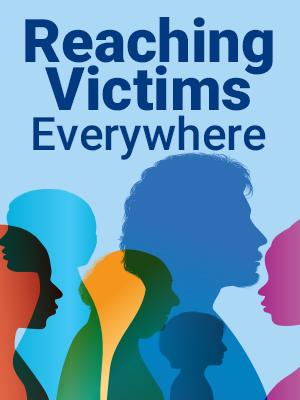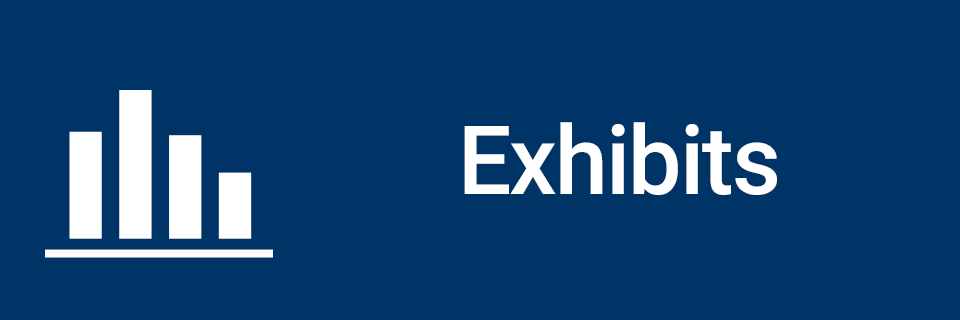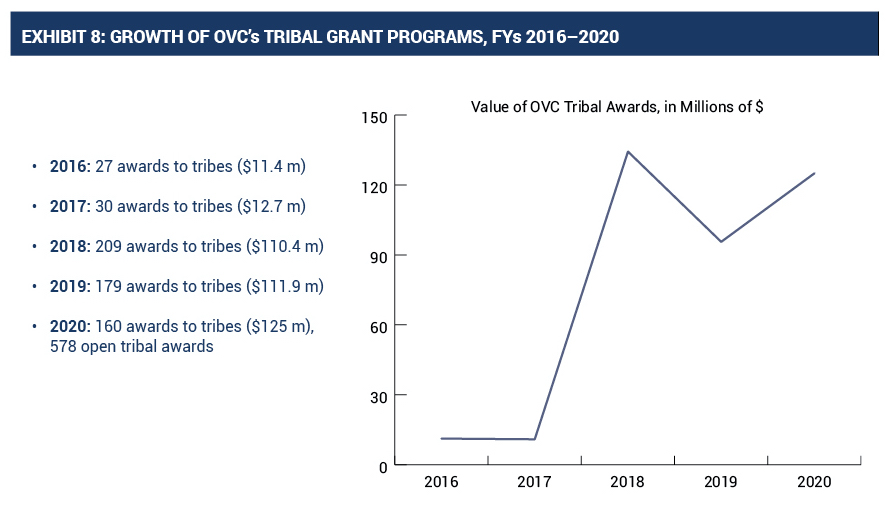Archival Notice
This is an archive page that is no longer being updated. It may contain outdated information and links may no longer function as originally intended.
Tribal Communities
American Indians and Alaska Natives (AI/AN) suffer from one of the highest rates of victimization in the country. Cultural differences, remote locations, and challenging jurisdictional issues make providing victim services in tribal communities complex. In its work with tribes, OVC pays particular attention to government-to-government relationships with our tribal government grantees and to supporting tribes in providing culturally appropriate services for victims.
Tribal Services Set-Aside From the Crime Victims Fund
The FY 2018 Commerce, Justice, Science, and Related Agencies Appropriations Act provided for $133 million—3 percent of the Crime Victims Fund (the Fund) allocation—to be used to support a broadly applicable tribal set-aside program for tribes to provide services for crime victims. Tribal set-aside funding is used to support grants and training and technical assistance (TTA) designed to improve and expand victim services in Indian Country and Alaska Native villages to build the capacity of tribes to respond to crime victims’ needs. In the FY 2019 budget, Congress authorized a tribal set-aside of $167.7 million (5 percent of the Fund allocation). Of that, OVC administered 95 awards totaling $62.5 million under the OVC FY 2019 Tribal Victim Services Set-Aside Program, and 49 awards totaling $24.1 million under Coordinated Tribal Assistance Solicitation Program Area 7 (see exhibit 8).
A total of 7,355 individuals were served under the tribal set-aside program between FY 2019 and FY 2020. Of the victimizations identified, domestic and/or family violence was the most prevalent (39 percent), followed by child physical abuse (12 percent). Individual advocacy was provided nearly twice as frequently as referrals to other services, supports, or resources (12,046 occurrences and 6,933 occurrences, respectively.) Hotline/crisis counseling was also frequently requested (5,966 occurrences), as were crisis intervention services (5,826 occurrences). Additionally, the Tribal Set-Aside Victim Service grantees implemented 1,342 improvement projects and completed 1,107 project deliverables.
In FY 2019, OVC also used set-aside funds to deliver technical assistance and micro-grants to tribes through partnerships with the National Congress of American Indians and the Denali Commission. Tribes that did not receive FY 2019 set-aside awards were eligible to participate in the first rounds of funding under these two programs. These two programs aim to map tribes’ victim services needs and build capacity to participate in the tribal set-aside program in the future.
Through a partnership with the Office on Violence Against Women, OVC used FY 2019 set-aside funds to establish, sustain, and expand sexual assault nurse examiner (SANE) services for sexual assault victims in tribal communities. The OVW Sexual Assault Forensic-Medical and Advocacy Services for Tribes (FAST) initiative builds tribal communities’ capacity to train, mentor, and retain SANEs. Sites use $7 million in set-aside funds to cover operational costs, including salaries and fringe benefits; training and mentoring for aspiring and current SANEs; and equipment and supplies.
In FY 2019, the University of North Texas Science Health Center received $500,000 in set-aside funds to support the National Missing and Unidentified Persons System (NamUs), managed in collaboration with the National Institute of Justice. NamUs provides targeted outreach to Native American and Alaskan Native communities, and underserved populations in need, with support in managing missing and murdered person cases. Support services included assistance with filing missing persons reports, collecting family reference samples, and specific training for tribal law enforcement users.
The tribal set-aside was again authorized in the FY 2020 budget at 5 percent of the Crime Victims Fund, for a total of $132.5 million. In response to tribal consultations and listening sessions, where tribal leaders expressed a strong preference that the set-aside funding be distributed via a formula rather than a competitive solicitation, OVC allocated the FY 2020 funding by an interim discretionary administrative formula. Applicants first submitted population certifications so that OVC could determine the base amount that could be allocated to each tribe based on the total Tribal Victim Service Set-Aside funds available and the number of applicants. OVC allocated approximately 68 percent of the total Tribal Victim Services Set-Aside funds available, to provide a base amount of $400,000 to each tribe. The remaining funds were distributed across eight population tiers and added to the base amount of each applicant (see exhibit 9). OVC used the first administrative formula to make 133 noncompetitive awards totaling $112.6 million in FY 2020. These funds will provide victim services to more than 200 tribes.
Because OVC funding for victim services in tribal communities has risen exponentially since the advent of the tribal set-aside, the OVC Tribal Division was created in June 2020 to manage this expanding body of work, in response to calls from the field to create a division dedicated to oversight of OVC’s tribal programs. The Tribal Division seeks to minimize the burden of administering federal grant programs wherever possible—for example, by reducing the number of supporting documents required for submission of an application, and transitioning the Tribal Victim Services Set-Aside program from a competitive funding program to an administrative formula program. Both of these programmatic changes came in response to tribal leaders’ feedback from consultations and listening sessions held during the past few years.
Coordinated Tribal Assistance Solicitation Program
DOJ’s Coordinated Tribal Assistance Solicitation (CTAS) funds federally recognized tribes, tribal consortia, and tribally designated organizations. Through CTAS, federally recognized tribes and tribal consortia are able to submit a single application for most of DOJ’s tribal grant programs. DOJ designed this comprehensive approach to save time and resources, and to allow tribal organizations and the Department to gain a better understanding of the tribes’ overall public safety needs.
CTAS Purpose Area 6, managed by OVC, is funded under the Children’s Justice Act Partnerships for Indian Communities (CJA) to support communities in developing, establishing, and operating programs that improve the investigation, prosecution, and handling of child abuse—especially child sexual abuse—in a culturally appropriate and trauma-informed manner to lessen trauma for child victims. In FY 2019, OVC funded 12 tribes under CJA, awarding a total of nearly $4.476 million. In FY 2020, OVC funded 11 tribes under CJA, awarding a total of more than $4.685 million.
Between FY 2019 and FY 2020, a total of 1,407 victims were served under CTAS Purpose Area 6. Of those reporting demographic information, 55 percent were female and 45 percent were 12 years old and younger. The top three reported victimizations were child physical abuse (70 percent), child sexual abuse (16 percent), and domestic and/or family violence (8 percent). Individual advocacy (1,498 occurrences), crisis intervention (1,042 occurrences), and referral to other services, supports, and resources (629 occurrences) were the services provided most frequently over the 2-year reporting period. In addition to providing services, CTAS Purpose Area 6 grantees implemented 201 improvement initiatives and completed 172 project deliverables.
In FY 2019, before the advent of the Tribal Victim Services Set-Aside Formula Program, OVC also distributed set-aside funds under CTAS Purpose Area 7, Consolidated Tribal Victim Assistance (CTVA), which supported tribal programs in responding to crime victims, their families, and communities through culturally appropriate and trauma-informed services. The goal of CTVA was to help AI/AN communities develop, enhance, and sustain comprehensive victim assistance programs that provide a coordinated, collaborative, and multidisciplinary response to victims of crime, their families, and the community; and to provide trauma-informed, culturally competent, holistic services to all identifiable victims of crime, their families, and the community. In FY 2019, OVC awarded $24,171,113 in CTVA funds to 49 tribes. In FY 2020, CTVA was replaced by the Tribal Victim Services Set-Aside Formula Program.
Under CTAS Purpose Area 7, a total of 2,655 victims received services between FY 2019 and FY 2020. Of those who provided demographic information, 72 percent were female and 47 percent were between the ages of 25 to 59 years old. The most commonly reported victimization type was domestic and/or family violence (30 percent), followed by child physical abuse (16 percent), and adult physical abuse (13 percent). While there were numerous occurrences across a variety of services provided, individual advocacy was the most frequently requested service (9,813 occurrences), followed by emergency shelter or safe houses (5,083 occurrences), information about the criminal justice process (3,679 occurrences), and information about victims' rights, how to obtain notifications, etc. (3,539 occurrences). CTAS Purpose Area 7 grantees implemented 486 improvement initiatives and completed 349 project deliverables.
Developing Future Victim Specialists
It can be difficult to hire and retain qualified victim specialists and advocates who serve victims in remote Indian Country and Alaska Native villages. Through the Developing Future Victim Specialists to Serve American Indian/Alaska Native Victims of Crime program, OVC sought to cultivate a workforce focused on providing services to AI/AN victims in hard-to-staff positions and locations. By identifying and training prospective victim service professionals in the early stages of their post-secondary education and career, tribal and Bureau of Indian Affairs’ (BIA) victim services programs will hopefully have an easier time filling victim service positions in remote tribal locations. OVC made five awards totaling $2.243 million to tribes and tribal-serving entities under this program in FY 2020.
Tribal Access Program
DOJ launched the Tribal Access Program (TAP) for National Crime Information in August 2015 and has expanded it yearly so tribes can access national crime information systems for both civil and criminal purposes. TAP allows tribes to more effectively serve and protect their communities by ensuring the exchange of critical data across the Criminal Justice Information Services system and other national crime information systems.
In FY 2019, OVC administered $10.6 million TAP funding and $5 million in FY 2020. TAP funding provides kiosks, software, and training; onboarding and vetting services; and deployment services; and ongoing support for tribal nations. Specialized training and resources will be developed to emphasize how systems can be used to protect victims of crime. Additionally, funding will support tribes currently working with TAP to enable them to submit orders of protection; enter domestic violence, sexual assault, and stalking convictions; and use other system capabilities that will protect crime victims. For more information, visit the TAP website.
OVC Support for Bureau of Indian Affairs Programs
OVC funds several victim-centered Bureau of Indian Affairs (BIA) programs to assist in BIA’s mission to enhance quality of life, promote economic opportunity, and fulfill the responsibility of protecting and improving the lives of those in AI/AN communities. In FY 2018, OVC administered $3,330,530 (for a period of 4 years) to support victim specialists (and related costs) at various tribal locations under BIA jurisdiction to provide direct victim assistance and help ensure that all crime victims receive the services and referrals they need and are entitled to under U.S. Department of the Interior/BIA policy, the Victims’ Rights and Restitution Act, and the Attorney General Guidelines for Victim and Witness Assistance.
The aforementioned victim specialists often receive requests for victim service-related TTA from tribes and local communities. However, they often lack the funding to support their travel to these communities, outside of what they use to respond directly to victims. In FY 2018, OVC provided $275,640 (for a period of 4 years) to help fill this gap.
Technical Assistance and Capacity Building Delivered to Tribal Communities
Programmatic TTA
OVC funds expert providers to deliver culturally relevant programmatic TTA to its tribal grantees. Services include communicating with grantees about important notices, available resources, and upcoming TTA opportunities; and providing assistance such as help with strategic planning, delivering specialized training opportunities via eLearning and in-person methods, and facilitating opportunities for grantees to engage in peer-to-peer mentoring.
The 2018 TTA providers that provided services in FYs 2019 and 2020 conducted 31 trainings for 1,326 participants, including victim service providers, victim advocates, and legal service providers/courts, among others. Participants completed 412 post-training feedback surveys; 97 percent reported overall satisfaction with the trainings and 87 percent reported an increase in knowledge. The TTA providers also completed 1,646 TA requests, with 5,031 recipients.
In partnership with tribes within the Anchorage Service Unit and nonprofit partners, the Alaska Native Justice Center offers victim-centered TTA services free of charge to existing and emergent Alaska tribal justice systems. TTA offerings reflect the particular needs of Anchorage Service Unit tribal communities.
The Alaska Native Women’s Resource Center is dedicated to strengthening tribal governments’ responses to domestic and sexual abuse and violence. The resource center provides targeted technical assistance to develop and implement culturally tailored training for remote Alaska Native villages about responding to domestic and sexual abuse and violence.
Financial Management Capacity for Tribes
Launched in 2019, the Tribal Financial Management Center (TFMC) provides data-informed, culturally humble, victim-centered TTA and resources to support AI/AN communities as they successfully manage the financial aspects of their federal awards. TFMC offers customized virtual and onsite TTA, a Virtual Support Center, financial management needs assessments, dynamic programming (webinars, regional trainings, office hours, and Learning Circles), and robust curriculum, including tiered micro-learnings and over 40 Financial Policies and Procedures Guide Sheets to enhance existing financial management capacity and support grantee award implementation. Available assistance spans the lifecycle of an OJP award—from application preparation to award acceptance, and ultimately, the effective financial implementation, management, and reporting. Financial Specialists are uniquely trained, and qualified to meet the diverse, and varied needs of tribal grantees.
TFMC currently serves 243 tribal entities with approximately 800 awards, conducting more than 350 intensive TA engagements since project inception, with an average of 26 active engagements at one time. Over the past year, TFMC’s agile and responsive model has pivoted to provide innovative and seamless virtual support, strengthened outreach and grantee touchpoints, and increased collaboration with Grant Managers and OVC TTA providers. TFMC is intentional about meeting grantees where they are and provides meaningful financial management support as tribal grantees enhance public safety and service to crime victims.
Human Trafficking Capacity Building for Tribes
The Human Trafficking Capacity Building Center helps tribes and organizations start, sustain, or grow their anti-trafficking work. The center is a coaching and development hub that provides free services intended to provide immediate and sustainable benefits to organizations and tribal nations with minimal demands on their time.
In FY 2020, the center reached 109 tribal contacts nationwide and 32 tribes and tribal victim service providers in target regions, offering information about the center’s services. Targeted tribal outreach resulted in the center working with 3 tribes, responding to 13 tribal informational requests, identifying opportunities to participate in 2 conferences and meetings, and sharing information with 33 contacts to distribute to their networks. The center also proactively reached out to urban Indian health centers, coalitions, and epidemiology centers to share information and talk about the potential intersection of human trafficking.
Tribal Convenings
Every 2 years, OVC sponsors the National Indian Nations Conference, the most widely attended DOJ tribal conference. The global pandemic delayed plans for a 2020 National Indian Nations Conference and OVC is now looking at dates in spring 2022 for this event. OVC takes seriously its responsibility to hold formal consultations with tribal leaders, and held seven consultations in FYs 2019 and 2020:
- Tribal Set-Aside Consultation, held May 1, 2019, in Fairbanks, AK
- Tribal Set-Aside Consultation, held August 20, 2019, in New Buffalo, MI
- Tribal Set-Aside Consultation, held February 12, 2020, at the National Congress of American Indians, in Washington, DC
- Tribal Set-Aside Consultation, two held virtually on February 13, 2020
- Tribal Set-Aside Consultation, held virtually on November 17 and 18, 2020
For additional information, visit OVC’s website.






